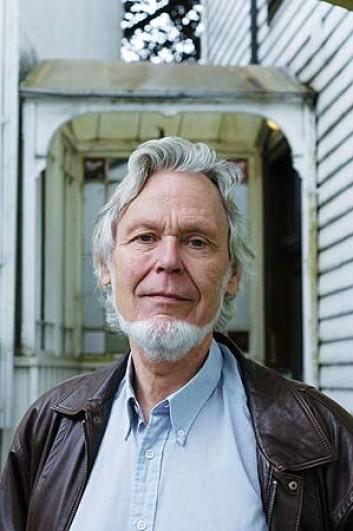Working life relevancy must be reconsidered
Professor emeritus at the University of Bergen, Gunnar Skirbekk, is worried about a new proposal for financing higher education institutions in Norway.

Main content
In an opinion piece for Uniforum, University of Oslo’s online newspaper, Skirbekk lists several reasons why this proposal must be reconsidered. It was submitted by the Norwegian Parliament majority in the spring of 2020 and approved in June. In the resolution, the Parliament asks the government to present a proposal for a new way of financing institutions of higher education where relevant employment after completed studies and working life relevancy are among the factors.
A limited and short-sighted proposal
Skirbekk, who established the Centre for the Study of the Sciences and the Humanities in the 80s, thinks that the proposal is too limited and short-sighted for our modern, science-based society.
"Should only changes in the work sector require increased expertise and updates?" asks Skirbekk. "What about climate changes, increasing socio-economic differences, the undermining of democratic and judicial institutions, spreading of disinformation and fake news, and geopolitical tensions with the risk of military confrontations?"
According to Skirbekk, the answer is self-evident: In modern, science-based and crisis-stricken democracies, we need expertise and updates beyond what is needed in the workforce, and in this context, the institutions for education and enlightenment are important.
Limiting the "need for expertise" to the work sector means that other important proficiency needs are being ignored. This could again lead to resolutions that end up being counterproductive when it comes to communicating academic criticism; something for which public universities have a particular responsibility.
"In short, both the grasp of the situation and the resolution about new ways of financing higher education are unfortunate," says Skirbekk.
The future is uncertain
According to Skirbekk, the next battle will be over the white paper on governance policies for public institutions of higher education, which will most likely be processed in the beginning of 2021. With this in mind, he addresses several questions and perspectives that he wants the politicians in charge to consider. Among other things, he questions the future the proposers are envisioning.
"This is a plan for a future that’s changing but still ‘normal;’ with financial growth and without destabilizing socio-political conflicts. However, is this future certain to happen? In the modern world, there are many urgent challenges that often amplify each other and make the future uncertain in many ways," says Skirbekk.
Adjusting to a sustainable future
He also criticizes the premise that the work sector must passively adjust to new technology and globalized capitalism:
"In this proposal, the fact that the work sector must adjust is taken for granted. However, should we not try to adjust the technology to the work sector the way we want it? And should we not discuss how we can possibly adjust the financial system to an ecologically and politically sustainable future?"
What does «working life relevancy» mean?
Skirbekk goes on to address the fact that we aren’t just employees, but also citizens with a social responsibility that requires knowledge and expertise beyond the demands we are met with in the workforce. He also asks what "working life relevancy" means.
"The future is uncertain, so what kind of employment expertise is needed now and in a long-term perspective? This is difficult to predict, but it means that the education plans and the financing of education must be organized accordingly. They cannot be too limited or influenced by current events."
The university – what is it for?
In his piece, Skirbekk offers thorough reflections regarding the role of public institutions for higher education. He highlights the importance of differentiating between separate types of educational institutions and disciplines and emphasizes the need for interdisciplinarity, expertise on academic criticism and quality assurance.
"Full-scale and highly qualified universities must be able to work under other framework conditions than institutions with just one or a few disciplines; whether they are called universities or not," he claims.
Academic criticism in modern societies
Towards the end of his piece, Skirbekk reiterates the need for a well-informed, self-critical and dialogic academic criticism as a core activity in research-based and multidisciplinary universities. This also has implications for other central institutions in modern societies, particularly the school system and the media.
"In light of what I have previously said, it is therefore important to discuss how the university, the school and the and media, and the relationship between them, best can be organized. As citizens in modern, science-based democracies in crisis, we have a co-responsibility for what is happening in society and with the nature, nearby and far way, and in the short and long-term."

